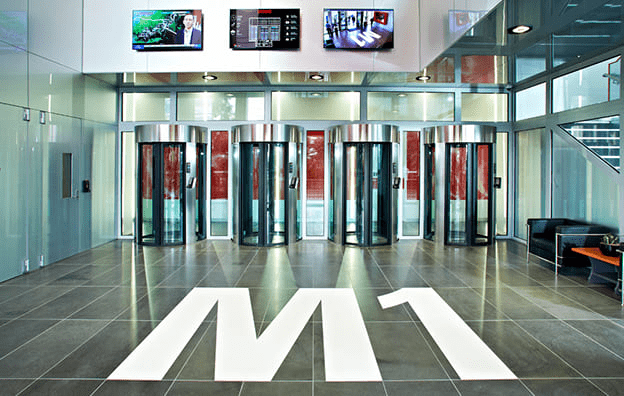By Andrew McNutt, Mining & Resources Sales lead
Today, business resilience is totally dependent on the effective administration and integration of digital infrastructure, complex interconnection networks and comprehensive security risk management strategy. Most organisations have acknowledged these availability imperatives and plan strategically to avoid downtime across all infrastructure architecture.
However, there is another element of business continuity planning which deserves scrutiny. Your teams managing the whole digital risk portfolio also have critical need for 100% uptime so that they can exercise the control, flexibility and agility needed to avoid crises and remain proactive in delivering these essential services to the business.
It is all very well to have the most secure, resilient, and flexible infrastructure and networks but that could all be for nought if your operational teams themselves have service interruptions around the critical systems, applications, and spaces they utilise. No-one can afford for the operations centre to be the weakest link in the transformation chain.
Literally billions of dollars have been invested in designing and implementing scalable, flexible, and reliable digital architecture underpinning the opportunities surfaced by digital transformation. Increasingly, additional attention is being focused on ensuring the operations centres managing critical infrastructure and platforms are protected from unexpected disruption.
Mission critical operations (MCX)
Operations teams play a critical role in ensuring that organisations reap the benefits of investment in technology platforms, systems, and processes. Traditionally, the costs of building, maintaining, and managing operational sites where mission critical teams supported digital architecture represented another capital expense.
A simpler way of deploying this capability as a service is starting to emerge, where you can future proof your organisational requirements and not have to worry about sinking large amounts of capital into a leased office environment.
If you think about a team that operates a financial transactions platform, traffic management of a road network or supervising autonomous equipment remotely on a mine site, they can never afford to lose sight of the complex hybridised digital environments in their control.
They need to be located in an environment that is itself completely fault tolerant and compliant to standards for security, sustainability, safety, and quality assurance. By eliminating the cost and need for specialist skills to manage mission critical operations space and embedding your operations teams right next door to your infrastructure, resources – both human and capital – can be redirected to areas where there is more direct return on investment.
MCX use cases
Every transforming organisation has mission critical operational requirements. There are three core MCX use cases we are seeing where customers are targeting reduced risk through the use of MCX services:
- Network Operations Centre (NOC)
Interconnection is the key to success in Hybrid IT environments. Organisations need to share data from everywhere with multiple clouds, applications, teams, and locations. The networks responsible for this connectivity need to be resilient, secure, agile, and flexible.
Visibility, integration, and proactive management of complex physical and virtual services is helping customers reduce costs, improve network performance and to more efficiently manage network complexity.
Early adopters of MCX include financial services customers managing global trading platforms and large national retail customers. Neither can afford to ever be offline. Their networks extend to a multitude of locations, clouds, digital services, and teams. Even one second of downtime can have cascading impacts that affect their own bottom line as well as those of customers and partners.
NOCs are critical to maintaining uptime and introducing levels of control over complex and often chaotic interconnection strategy.
- Security Operations Centre (SOC)
Data security and sovereignty is dependent upon proactive protection against human error and malicious actors. Security risk management consistently emerges as the greatest challenge faced by technology leaders. High density servers are increasingly being deployed to manage all data flow across the organisation and interconnection with external parties.
Identifying content of data packets before they are put into flight to ensure that pathways, senders, and recipients are all in alignment with established protocols has to happen at lightning speed so as to not impede user/customer experience.
There can be no room for error in security management of data being utilised as business intelligence. MCX services make sense for SOC management because of the latency-sensitivity of applications managing data in flight and because they can scale quickly without the need for capital investment.
- Remote Operations Centre (ROC)
Megatrends are helping to shape the smart cities, mines, manufacturing, and governments of the future. As these new ways of operating evolve, automation at the front-line still requires complex operational infrastructure at the back end.
As autonomous freight, traffic management, production lines and smart civic infrastructure continues to proliferate, cloud platforms, networks and information systems are mission critical to productivity, business continuity and cost management.
Much like security and network operation centres, these critical environments would traditionally be located close to the equipment they manage in capital-intensive, custom-built facilities that were inflexible across a long lifecycle. Specialist spaces within the hybridised colocation and cloud environments now being utilised makes a lot more sense.
Standardised MCX at NEXTDC
Efficiently, safely, and sustainably supporting evolving operational needs and increasing dependence on digital systems across all organisational disciplines is a core value proposition serviced by megatrends such as cloud, and colocation.
It’s absolutely imperative operations centres managing transformation and future readiness of your organisation achieve the same 100% uptime SLAs being targeted for infrastructure and networks. At NEXTDC, we understand the business continuity and infrastructure resilience imperatives associated with participating meaningfully in the smart economies of the future. Helping to achieve the business outcomes you are targeting is something we take very seriously.
Reach out to NEXTDC if you want to know more about how your operations management teams and platforms can drive transformation success with the help of mission critical operation centres.

.png)
